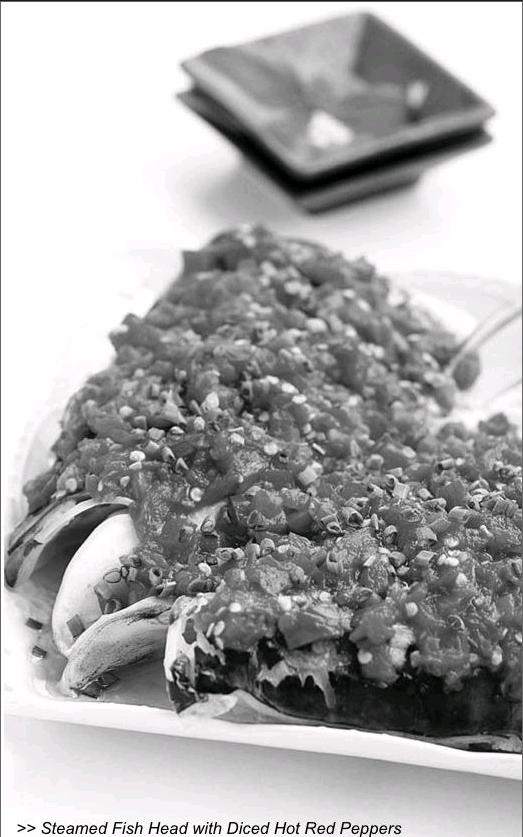Hunan Cuisine
2014-03-20

The Hunan Cuisine is one of the oldest cuisines. With the short name as Xiang Cuisine, the system of this cuisine was formed in the Han Dynasty, when people of Hunan had high cooking skills. Hunan is a province located in the central area of China. It borders the middle section of Yangtze River in the south and lie against the Southern Ranges in the north. It also accommodates the famoue Dongting Lake. With the full exposure to sunshine and rainwater, Hunan boasts great agricultural advantages, allowing various plants and animals to grow on the land, as well numerous aquatic products in the water. Even the famous historical book Shih Chi described the prosperity of Hunan and its ability to keep the famine from the people of Hunan.
The abundance of food materials allowed people in Hunan to study into how to make the best of these materials and they created a lot of delicious courses. According to the research, Hunan was inhabited by people of several ethnic races in the Spring & Autumn Period. Their miscellaneous eating habits combined together, laying a foundation for the Hunan Cuisine.
At that time, people did not pay too much attention to food on ordinary days. However, strict requirements for the flavor, smell, taste and shape of the dishes emerged when it came to the sacrifices and other ceremonies: such as the wedding, funeral and so on.
During the Qin Dynasty, the cuisine culture of Hunan has got a rather complete system including the use of materials, the seasoning methods, the styles and the tastes. From the menu discovered in ancient tombs, there were nine kinds of soups, and 24 methods of making pork porridges at that moment.
Then, in the Western Han Dynasty, the cuisine in Hunan got further development compared with the previous dynasties. The cooking methods had been expanded to roasting, frying, boiling, simmering, sauntering, pickling and so on. The seasonings used for food includes salt, sauce, fermented soy beans, sugar, honey, cinnamon, pepper and liquid with alcohol. At this moment, the Hunan Cuisine got its style and name, which got more developed in the Tang and Song Dynasties, since the growing migrants and trades in Hunan Province brought a lot of foreign elements into this cuisine.
The history of Hunan made “eating” an important matter for the people in this province. Dinners for different events have their own special names, such as the “joyful dinner” for wedding, “meat dinner” for funerals and so on. Different events require different courses as well, such as the “roasted egg” and noodles for birthday parties.endprint
One of the greatest features of Hunan Cuisine is its spiciness. People of Hunan favored spicy food as much as people of Sichuan and Guizhou. There is even a saying that Hunan people could not survive without spicy things. The capsicum, which was imported from foreign countries hundreds of years ago, soon became very popular in Hunan.
Hunan peoples favor of spiciness could be explained from three factors: the first one is the climate of Hunan. This province stands in a “belt of spiciness” around the earth. Sichuan, Mexico and North Africa are all in that “belt” and people there loved spicy food as well. The geographical location exposed Hunan to the warm and wet airflow from the Bay of Bengal and the Pacific Ocean, leading to the heavy rain in this province. In addition, the Yangtze River and Dongting Lake are like a natural air conditioner, making the weather of Hunan hot in the summer and daylight or cold in the winter or evening. The warm weather is good for the growth of capsicum, but the cold accompanied with the humid air is torturing people. Therefore, they need spicy food to fight against the humid coldness.
The second factor is about the economy. Hunan is far away from the coastline and the traffic there was not convenient in the old time. So the salt, an important seasoning, was hard to be transported to Hunan. The capsicum, which was easy to get and had the function of improving the flavor, became an ideal substitute for the salt. Such a tradition was kept and passed down till now.
The third factor is related with the personality of Hunan. Being brave and hot-tempered, Hunan people represented the aggressive and unyielding side of Chinese peoples characteristics. People say that “China will not perish if there is one man from Hunan left”. In the history of Hunan, the people there went through numerous wars and migrants. They are able and eager to resist others and are durable enough to handle difficult situations. During the Anti-Japanese War, the army made up of Hunan people, which was termed as “Xiang Troop”, won the most battles and killed the most invaders. The hot blood of Hunan people tallies with, and is boosted by the heat from the spicy food.
In order to bring the spicy materials into full use and make it perfectly adapt to other materials, cooks of Hunan Cuisine attach great importance to the combination of raw materials. They are also very good at simmering the food. With this method, they can make different kinds of soups, which have become the famous courses.endprint
